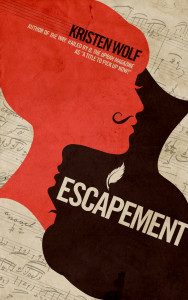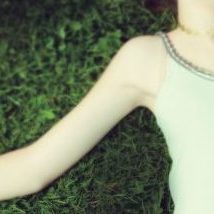 Gorgeous historical lesbian drama.
Gorgeous historical lesbian drama.
Much of what is published under the lesbian fiction category is straightforward romance, queer chick-lit if you will.
Every now and then, though, someone writes something that while still having a lesbian character at its heart, lifts up into the realms of literary fiction that leaves you shaking your head in wonder at the skilful storytelling, the use of language, and the depth of characters. This is one such book.
The story is set in an unnamed country, which could be Germany or Austria. It is also set in an unnamed year, but its topical references hint at somewhere in the 1860s or 1870s. It is narrated by Henri, an androgynous woman, often deliberately passing as, or mistaken for, a man. She is employed as the housekeeper to an up-and-coming composer, Christofer Vaughn, seen by many as a direct rival to Wagner. However, Henri possesses many talents beyond mere housekeeping, talents which a woman is not supposed to possess in this era: she is also a composer, and probably an even better one than Christofer. While it is Christofer’s name that goes on the final, published music, Henri has more than a helping hand in bringing that music to life. However, she always declines recognition, as she holds a secret fear of what her talents have caused in the past and could cause in the future.
Her sexuality is no secret to Christofer and their closest friends, Clara and Richard Thorne. She has loved seriously once in her life, and it ended badly, so she fears ever love that strongly again. A new sponsor has recently been found for Christofer, a pig of a man called Jacque who has a beautiful wife, Ava. Then, one day while passing as a man, Henri is put forward as a piano tutor for Ava…
There is so much wrapped up in this book that I can’t really do it justice in a short review. There is drama, like the secrets that all the characters possess risk breaking free, with many lives facing ruin if they do. There is a wonderful historic setting, detailing the manners of the times, and the restrictions placed on women to prevent them from being the talented humans they are. There is a rich tapestry of classical music references woven throughout – I knew very little of the pieces mentioned, or how an orchestra’s different instruments combine to produce those pieces, but the author’s incredible use of language to describe such music completely sucked me in. Sometimes the prose itself was like music, lilting one way and that, interspersed with frantic phrases as the action unfolded and key moments came to head.
Henri is a wonderful character, equal parts fearless to live as who she is, and terrified of realizing her full potential. She has faults that you can’t help relating to, and a depth of platonic love for Christofer and her friends that really pulls at your heartstrings. If you want something very different to delve into with a strong lesbian lead, you definitely want to put this book on your shopping list.




